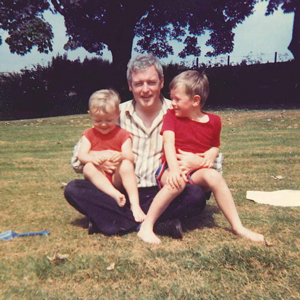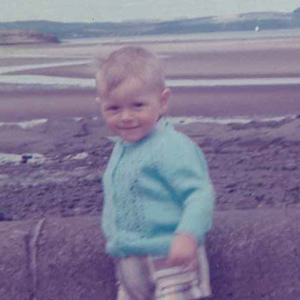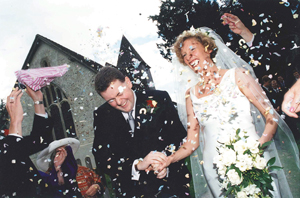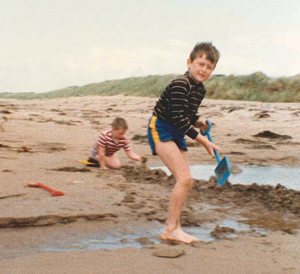Neil Carberry’s relationship with education didn’t get off to the best of starts with his Edinburgh primary school burning down the day before his fifth birthday.
“I could see it from my bedroom window,” he says.
“And when you’re just about to turn five, that happening just before your birthday is a bit freaky.
“I remember sitting in my bed going: ‘Has this got anything to do with me?’”

The school was rebuilt as a much-needed special needs school so, Carberry says, “in many ways it was alright in the end”.
Carberry coped with the change in his education and, now director for employment and skills at the Confederation of British Industry (CBI), he has a refreshingly laid — back outlook on the changes gripping the FE sector.
“I think there’s an element of defensiveness in the sector about facing up to the coming of a market, and some smaller employers are rightly worried about change — because businesses do worry about change,” says the 37-year-old. But he feels this anxiety is largely fuelled by providers.
“There are lots of small and medium enterprises which phone me up and say: ‘I’m worried about apprenticeship reform’,” he says.
“Funnily enough, they all say it in exactly the same terms, and they’re all worried about something that I don’t think is clear comes with employer-directed funding, and that’s red tape.
“And there are some providers who are telling small businesses: ‘All these meetings with the Skills Funding Agency I have to go to, you’ll have to do that if you get the funding’.

“That’s not what it’s meant to be — and actually, I see my job as making sure that that’s not what it is.
“If you get it right, the money flows to businesses to buy training, and you sweep away the red tape.”
Carberry tells me that, for him, FE represents “opportunity”.
“It’s about how are we helping people to make the best of themselves,” he says.
“There are two ways of thinking in many political environments — it’s either we have to give more to people, or it’s laissez-faire, and actually it’s somewhere in between.
“It’s how we put in place the structures that people can help themselves grow —and in the past we had a history of doing that really well in apprenticeships, not mention HNDs and HNCs, widespread opportunities for people to build their careers — you can see it in my family.”
Sustainable growth requires us to have routes for people who can’t take a year off and sponge off their wife, the way I did, to do their vocational learning
His father, Tom, started out as an apprentice printer, but moved into engineering.
“I feel very strongly about vocational education, partly because when I was a kid I didn’t see my dad on Tuesday and Thursday nights because he went down to Waverley station, got the train to Glasgow and went to do a HND,” says Carberry.
“Dad ended up as the chief executive of a major company, and he did it because he became a factory manager because he’d done a HND in a college in Glasgow.”
The family left Edinburgh and moved to Cumbernauld, a new town north of Glasgow. “New town living gets a bad rap,” says Carberry.
“But you always felt that the development corporations felt slightly guilty pulling all these families out of central Glasgow and central Edinburgh, so they put on some fantastic facilities.
“Actually, the most trouble I have ever been in with my mum and dad was when we went out to play, my little brother Graham and I, and we didn’t come back for nine hours — and it wasn’t because anything had happened, it was just that we got so absorbed in what we were doing.

“And that’s probably a childhood that’s lost on my children, which is slightly sad.”
Initially, Carberry was convinced he wanted to study sciences but he says, “met a deeply inspirational history teacher, and ended up doing the arts instead”.
“The teacher was an ancient historian, and taught me Latin and Greek alongside my A-levels.”
As a result, he says, he’s “that rarity — a working class, comprehensive school boy, who ended up doing classics at Oxford”.
“I’ve seen the error of my ways,” he jokes, nodding to the current emphasis on science, technology, engineering and maths subjects, but it’s hard to imagine Carberry would have enjoyed it as much.
A self-confessed “political history nut” he frequently breaks off to add historical anecdotes — his favourite Roman general is Quintus Fabius Maximus Verrucosus Cunctator, the man who “invented Guerrilla warfare”. He tells me this during a conversation about family pets.
Carberry also describes himself as a “sports nut” and a lifelong Heart of Midlothian fan — but it was his teenage love of rugby that introduced him to wife Alice.
“A friend of mine met my wife in passing in the corridor and they got to talking and she said her taste in men was Celtic rugby types, so he introduced us about five minutes later,” he says.
“There’s an element of defensiveness in the sector about facing up to the coming of a market, and some smaller employers are rightly worried about change”
“She’s a damned good conversationalist — I talk a lot and in a very disjointed way, and she kind of copes with that pretty well.”
The couple now live in Wallingford, just south of Oxford, with daughter Rowan, aged seven (“and a half — that’s very important,” he tells me), and son Tom, three.
After graduating from Oxford, Carberry found himself wondering what to do next.
He went back to working on the floor of a factory producing decorative card, which he had done to raise finance in university holidays.
Eventually Carberry decided he was “interested in people” and found a job at an HR consultancy for investment banks, which he describes as “a fantastic little family-run business, a really good grounding actually for the stuff we do at the CBI now”.
“I have actually been inside a business with 12 employees, I know what the difficulties are and I could see the effect it had,” he says.
He jokes that the job was “an opportunity to teach investment bankers how to behave like human beings”.

“It was really interesting and quite telling,” he says. “I met some fantastic people, and some I wouldn’t want to meet again.
“My sense was there were people saying: ‘There’s a cultural issue here’ — it was just starting to emerge, and I left before it all went south, partially because, if I’m honest, it didn’t feel real enough for me.
“After a while I thought, ‘You know what? Vocational education is kind of helpful…’ so I went and did a second degree, an MSc in industrial relations’.”
And a decade ago, following the MSc, he arrived at the CBI and after various roles, found himself at the head of its employment and skills division.
“Why am I here now? Because I went and did something more vocational,” he says.
“But in fact real sustainable growth requires us to have routes for people who can’t take a year off and sponge off their wife, the way I did, to do their vocational learning.
“It’s about making sure that what we’re doing is really relevant and that do people talk about vocational education as opportunity.”
It’s a role — combining his interests in politics, people and education —in which he seems utterly at home.
Although, he reflects: “I’m never happier than being in Heart of Midlothian’s stadium Gorgie, pie in one hand, pint in the other.”
It’s a personal thing
What is your favourite book, and why?
Around the World in 80 days by Jules Verne. I grew up in a new town in central Scotland, which I loved, but it can be quite dreary a lot of the time so travel seemed impossibly exciting, and I love to travel and Jules Verne was a kind of highway into that kind of thinking
What is your pet hate?
People who stop in front of you when you’re walking along — it really winds me up
What do you do to switch off after work?
I spent time with my family. We live outside London. I like to cook, and other sorts of inside things, and I’m a great reader of history, and I am an absolute sports nut. I’m a cyclist, but also I’m a massive football fan, and genetically cursed to follow the famous Heart of Midlothian
If you could invite anyone, living or dead, to a dinner party who would it be?
Political reformers Thomas Paine and Thomas Muir. I think I’d probably want one of the Pankhursts, because I imagine that they’d be good company at dinner, and Olympic athlete Jessica Ennis because I find her a very engaging and inspirational person
What did you want to be when you were growing up?
I had to deal with the crushing of my hopes fairly early on as I realised when I was about seven I’d only be wearing the famous maroon jersey of Heart of Midlothian Football Club from the stands and not the pitch. For a while I wanted to be a doctor, until I was about 16








Your thoughts